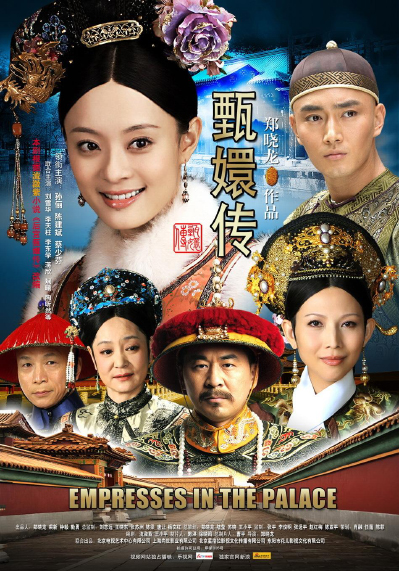| Lifestyle |
| The fine line between inspiration and infringement | |
|
|
 FILE
Popular Chinese costume drama Empresses in the Palace (2011), which tells the story of a girl's survival amid jealous intrigue and betrayal within the imperial palace walls, was recently thrust back into the spotlight after a 15-minute remake of the TV series starring 16 retirees with an average age of 62 went viral on social media. It drew mixed reactions with some, including the original drama's producer, accusing the video of copyright infringement, while others interpreted it as an invitation for younger generations, as well as the entertainment industry, to reflect on how to better address older people's needs for spiritual enrichment. Liu Tingting (Gmw.cn):These retirees and the producers of the remake only see the sunny side—the fun and the social media likes, while overlooking the dark underbelly where possible copyright infringement has occurred. For many, copyright infringement is a phrase reserved for all-out piracy. However, copyright does not equal the right to copy. The Copyright Law of the People's Republic of China states 17 derivative work-related rights, including the rights of adaptation, revision, performance, cinematography, and communication through information networks. Without authorization from the rightful copyright owner of Empresses in the Palace, the remake's performance, production, and online promotion all breach the law. Exceptions do exist. According to the law, a work may be used without permission for purposes of teaching or scientific research, the user's own personal study, research or appreciation, and nonprofit live performance. The remake clearly does not fit these exceptions, as the production company charged the participants a fee, and they in turn have garnered online fame and possibly revenue. A sharp line must be drawn between entertainment and copyright infringement so that the newly emerging business of film and television remakes can thrive within the set parameters of the law. Shen Jiequn (Youth.cn): The copyright issue is undeniably important, yet the popularity of the remake also reflects an increasing awareness among younger generations of their parents' need for a rich and fulfilling retirement. With advanced technologies and all other material conditions of happiness in place, older people now have many entertainment options to choose from, for example, online shopping and TV dramas. However, these choices do not alter the fact that life for many seniors is rather lonely. According to media reports, the remake was first proposed by the son of a participant, who wanted to spice up his mother's dull retired life by shooting a short film. The project turned out to be a dream come true for the senior cast, who got to enjoy the whole package that comes with acting—being trained in traditional etiquette, getting into character, having an opening ceremony and a wrap party. Their joy, which they shared on social media, has inspired many younger people to anticipate a full and exciting life in retirement. Xiao Gudong (Tmtpost.com): With China's population aging at a breakneck pace, recent years have seen a proliferation of TV series and variety shows that closely examine senior citizens. Frequently explored topics include love in old age, generation gaps and life in a nursing home. However, the majority of viewers are still the younger generations. To precisely target the senior audience's preferences, the entertainment industry has enlisted two strikers. The first is traditional television, where older generations can find content and services catering to their interests. The second, surprisingly so, are emerging sectors in the entertainment industry. With the rise of online influencers, some retirees have found their voice on short video platforms, where users are drawn to content like retired state banquet master chefs performing their culinary art, or a troupe of retirees remaking famous TV dramas. In fact, this remake of Empresses in the Palace can be understood as a senior version of jubensha, a Chinese murder mystery game that involves live action roleplaying. The phenomenon suggests the increasingly active participation of older people in recreational activities once exclusive to Gen Zs. Therefore, the remake is not a bad phenomenon that can be easily negated on purely legal grounds, but part of the huge market for senior-targeted entertainment. The task at hand is to walk the fine line between maximizing economic value and protecting copyrights. Copyedited by G.P. Wilson Comments to pengjiawei@cicgamericas.com |
|
||||||||||||||||||||||||||||
|
